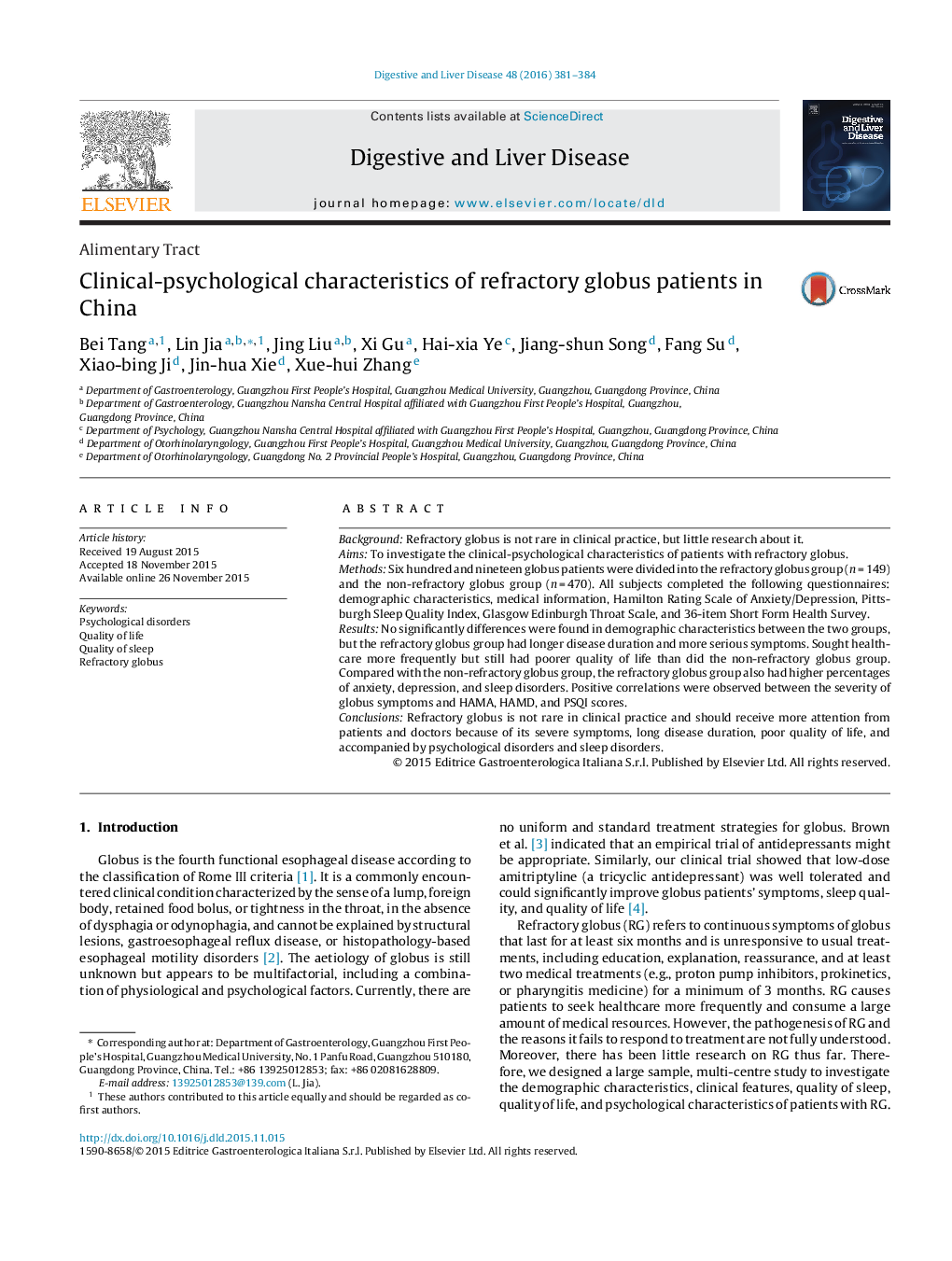| Article ID | Journal | Published Year | Pages | File Type |
|---|---|---|---|---|
| 3261466 | Digestive and Liver Disease | 2016 | 4 Pages |
BackgroundRefractory globus is not rare in clinical practice, but little research about it.AimsTo investigate the clinical-psychological characteristics of patients with refractory globus.MethodsSix hundred and nineteen globus patients were divided into the refractory globus group (n = 149) and the non-refractory globus group (n = 470). All subjects completed the following questionnaires: demographic characteristics, medical information, Hamilton Rating Scale of Anxiety/Depression, Pittsburgh Sleep Quality Index, Glasgow Edinburgh Throat Scale, and 36-item Short Form Health Survey.ResultsNo significantly differences were found in demographic characteristics between the two groups, but the refractory globus group had longer disease duration and more serious symptoms. Sought healthcare more frequently but still had poorer quality of life than did the non-refractory globus group. Compared with the non-refractory globus group, the refractory globus group also had higher percentages of anxiety, depression, and sleep disorders. Positive correlations were observed between the severity of globus symptoms and HAMA, HAMD, and PSQI scores.ConclusionsRefractory globus is not rare in clinical practice and should receive more attention from patients and doctors because of its severe symptoms, long disease duration, poor quality of life, and accompanied by psychological disorders and sleep disorders.
